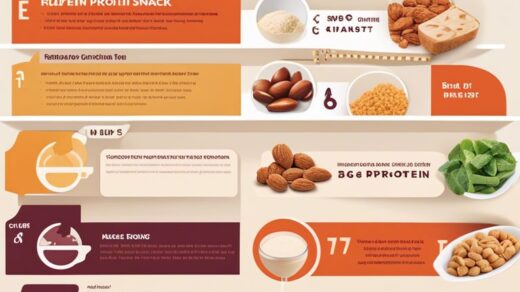You might be surprised to learn that gas buildup in your stomach is a common issue affecting many people. Understanding how to effectively remove gas can provide you with relief from discomfort and bloating. This blog post will guide you through various methods and lifestyle changes you can implement to alleviate gas and promote digestive health. For more immediate relief strategies, check out this resource on How to Get Rid of Gas Pain.
Key Takeaways:
- Dietary Changes: Adjust your diet by avoiding gas-producing foods such as beans, lentils, broccoli, and carbonated drinks.
- Hydration: Drink plenty of water throughout the day to help digestion and reduce gas formation.
- Physical Activity: Engage in regular exercise, such as walking, to promote digestion and relieve gas buildup.
- Over-the-Counter Remedies: Consider using products like simethicone, which can help break down gas bubbles in the stomach.
- Smaller Meals: Eat smaller, more frequent meals to prevent overeating, which can contribute to gas production.
Understanding Gas in the Stomach
For many individuals, experiencing gas in the stomach can be an uncomfortable and sometimes embarrassing issue. Understanding the underlying causes and symptoms associated with gas buildup is crucial for effective management and relief. In this section, we’ll explore into what leads to this common digestive problem and how to recognize its signs.
Causes of Excess Gas
One of the primary causes of excess gas is the ingestion of air while eating or drinking. Additionally, certain foods, particularly those high in fiber, can contribute to gas production during digestion. Carbonated beverages, legumes, and cruciferous vegetables are also known culprits. Furthermore, food intolerances and gut health issues can exacerbate the problem, making it important to identify and address these triggers.
Symptoms of Gas Buildup
On experiencing gas buildup, you may notice a variety of symptoms that can range from mild to severe. These can include bloating, belching, flatulence, abdominal pain, and discomfort. Identifying these symptoms is crucial in determining the best course of action for relief.
Symptoms of gas buildup often manifest as persistent bloating or a sensation of fullness in your abdomen. You might also find yourself burping more frequently or experiencing excessive flatulence, which can be socially awkward. Furthermore, gas can cause sharp cramping pain or a dull ache in your stomach, signaling that your digestive system may be struggling. Being aware of these symptoms can help you take the necessary steps towards alleviating the discomfort.
Home Remedies for Gas Relief
If you’re struggling with gas and bloating, there are several home remedies that can provide relief. From herbal teas to simple dietary adjustments, you can effectively manage your symptoms and feel more comfortable.
Herbal Teas and Infusions
Teas made from peppermint, ginger, or chamomile can be soothing for your digestive system. Sipping on these herbal infusions may help relax your gastrointestinal muscles and reduce gas buildup, allowing for better digestion and relief from discomfort.
Dietary Adjustments
Infusions of your diet can also play a significant role in managing gas. Start by identifying and eliminating gas-producing foods such as beans, lentils, and certain cruciferous vegetables. Incorporating low-FODMAP foods can aid in digestion, and eating smaller, more frequent meals can also help to prevent the accumulation of gas.
Physical Activity
To reduce gas, engaging in regular physical activities like walking or yoga can be beneficial. These movements aid digestion and help alleviate discomfort by encouraging the passage of gas through your digestive system.
Home exercises, such as gentle stretches or a quick walk after meals, can enhance your digestive processes. Even simple movements can stimulate your gut, encouraging gas to escape and relieving any bloat you may be experiencing.
Over-the-Counter Solutions
Many people experience gas and bloating at some point in their lives. If you’re looking for relief, there are various over-the-counter solutions that can help alleviate discomfort. For additional information about gas and its causes, check out this resource on Gas and Gas Pain: Causes, What It Feels Like, Location, …
Antacids and Gas Relief Medications
Solutions like antacids and specific gas relief medications can provide quick relief. Antacids work by neutralizing stomach acid, while products containing simethicone help break down gas bubbles, making it easier for your body to expel them. These medications are widely available and can be effective when used as directed.
Digestive Enzymes
For those who struggle with digesting certain foods, digestive enzyme supplements may offer significant benefits. These enzymes assist in breaking down complex carbohydrates and fats, reducing the amount of undigested food that leads to gas production.
The most common types of digestive enzymes include lactase, which aids in lactose digestion, and alpha-galactosidase, which helps break down beans and cruciferous vegetables. By incorporating digestive enzymes into your routine, you may find that you experience less gas after meals, enabling you to enjoy your favorite foods without worry.
Probiotics
For gut health improvement, probiotics can be highly beneficial. These live microorganisms help maintain a healthy balance of gut flora, which can promote better digestion and help reduce gas production in your system.
Another advantage of probiotics is their ability to enhance the overall health of your digestive system. By supporting a diverse microbiome, probiotics can help prevent gas, bloating, and other digestive issues related to imbalances in gut bacteria. Consider including probiotic-rich foods or supplements in your diet to support long-term digestive health.

When to Seek Medical Attention
Now, it’s important to be aware of when gas-related discomfort might signal a more serious health issue. Your body often communicates warning signs that should not be ignored.
Warning Signs of Serious Conditions
To discern if your gas symptoms are a cause for concern, look out for persistent abdominal pain, unexplained weight loss, severe nausea, or a change in bowel habits. These signs may indicate a more serious condition that requires medical evaluation.
Consultations with Healthcare Professionals
Signs of more severe complications may necessitate consultation with healthcare professionals for further examination and advice. It’s necessary to take your symptom’s frequency and severity into account, as chronic discomfort might indicate underlying digestive disorders.
For instance, if you experience ongoing symptoms such as severe bloating, irregular bowel movements, or any accompanying side effects like fever or vomiting, it’s advisable to schedule an appointment with a healthcare provider. Comprehensive evaluations can help rule out conditions such as irritable bowel syndrome or food intolerances, ensuring you receive the appropriate guidance and management of your symptoms.
Conclusion
So, when it comes to removing gas from your stomach, it’s important to implement a combination of dietary changes, hydration, and mindful eating habits. Incorporating carminative spices, staying active, and avoiding carbonated beverages can significantly alleviate discomfort. Additionally, practicing relaxation techniques can enhance digestion and reduce stress-related gas. If persistent or severe, consulting a healthcare professional is advisable to rule out any underlying conditions. By taking these steps, you can effectively manage and reduce gas, enhancing your overall digestive health.
Q: What are some common methods to relieve gas from the stomach?
A: There are several effective methods to relieve gas from the stomach. Some common approaches include:
- Over-the-counter medications: Products containing simethicone can help break down gas bubbles, making it easier for the body to eliminate them.
- Herbal remedies: Herbal teas such as peppermint, chamomile, or ginger can soothe the digestive tract and alleviate gas discomfort.
- Dietary adjustments: Avoiding gas-producing foods like beans, lentils, carbonated drinks, and certain vegetables (like broccoli and onions) can help reduce gas formation.
- Positioning: Certain positions, such as lying on your side or assuming the fetal position, can sometimes help release trapped gas.
Q: Are there any lifestyle changes that can help prevent gas build-up in the stomach?
A: Yes, making certain lifestyle changes can significantly reduce the occurrence of gas in the stomach. These include:
- Eating slowly: Taking time to chew food thoroughly and avoiding talking while eating can help reduce the amount of air swallowed, which can contribute to gas.
- Regular exercise: Physical activity can enhance digestive health and help combat bloating and gas. Simple activities like walking or light stretching can be beneficial.
- Avoiding chewing gum: Chewing gum can lead to ingesting excess air, which can increase gas. Opting for mints instead can be a better option.
- Monitoring fiber intake: While fiber is necessary for digestion, certain high-fiber foods can produce gas. Gradually increasing fiber intake can help the body adjust.
Q: When should I consult a doctor about gas problems?
A: While occasional gas is normal, you should consider consulting a doctor if you experience:
- Severe abdominal pain: If you’re experiencing significant discomfort that doesn’t subside with common remedies, it may indicate an underlying issue.
- Persistent bloating: If you find that bloating is a regular occurrence, it may be a sign of a digestive disorder that needs medical attention.
- Changes in bowel habits: Significant changes in bowel movements, including diarrhea or constipation accompanying gas, should be evaluated by a healthcare professional.
- Unexplained weight loss: If you’re losing weight without intention or explanation along with digestive issues, it’s crucial to seek medical advice.



